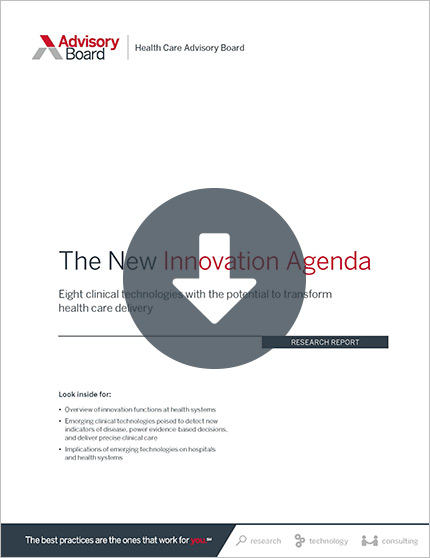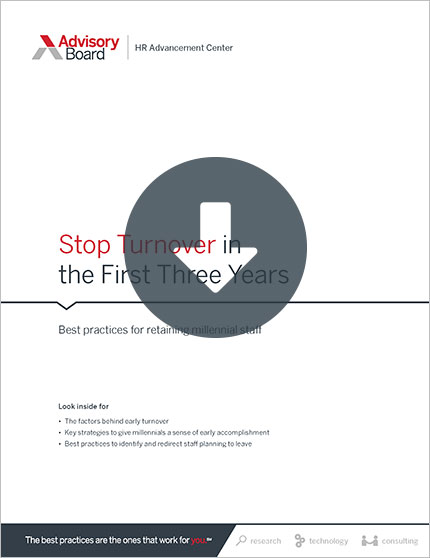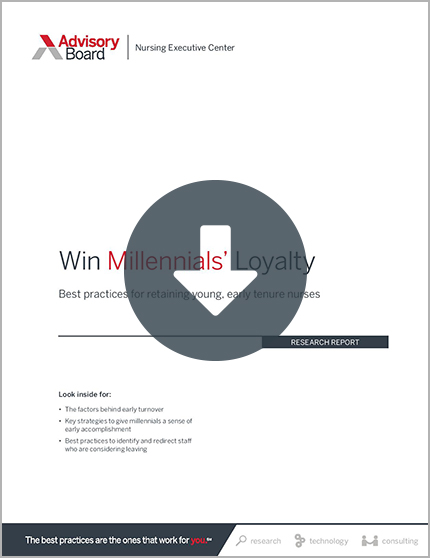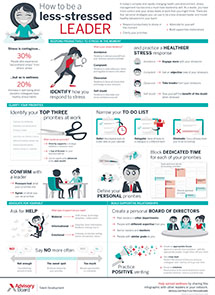Auto logout in seconds.
Continue LogoutForbes this week released its annual 30 Under 30 in health care list, which includes biological researchers, entrepreneurs, physicians, and PhD students under 30 years of age who are working to improve health care delivery in the United States.
How Forbes decided who made the list
Each year, Forbes accepts open nominations online for its 30 under 30 list. Forbes' editorial team—assisted by recommendations from respected investors, executives, and entrepreneurs—then narrows the candidate pool to about 60 finalists.
The final 30 are selected by expert judges in the field. This year's 30 under 30 health care list was finalized by four health care industry leaders:
- Kristina Burow, managing director of Arch Venture Partners;
- John Halakama, CIO of Beth Israel Deaconess Medical Center and dean of technology for Harvard Medical School;
- Philip Jones, VP of University of Texas MD Anderson Cancer Center's Therapeutics Discovery division; and
- Cigall Kadoch, founder of Foghorn Therapeutics.
Forbes' 30 under 30 in health care
This year's list honors the following 30 trailblazers in the health care industry:
- Johannes Birgmeier, 28, and Karthik Jagadeesh, 29, PhD candidates at Stanford University who developed AMELIE—an "automatic patient diagnosis system" that can detect gene variants that cause genetic disorders.
- Megan Blewett, 29, a PhD student and associate at Venrock, who has worked to find a more effective way for multiple sclerosis drugs to suppress the immune system, and is working to launch new companies in therapeutics.
- Nathan Buchbinder, 25, and David West, 24, both of whom are Johns Hopkins University students, and Coleman Stavish, 24, who co-founded Proscia, which uses AI to improve the efficiency of pathology tests for patients with cancer.
- Fei Chen, 28, a principal investigator at the Broad Institute who is creating microscopy technologies that could clarify the organization of complex tissues.
- Anna Chif, 29, co-founder of telehealth company Dialogue, which she created after taking care of her ailing grandmother.
- Tyler Clites, 28, a researcher at MIT who designed prosthetic limbs that can communicate movement sensations to the nervous system.
- Joshua Cohen, 28, a PhD student at MIT and a "leader" in the development of diagnostic tests that can detect cancerous DNA in a patient's blood.
- Connor Coley, 24, a PhD student at MIT who uses machine learning and data science to improve the synthesis of experimental drug molecules.
- Cecilia Corral, 28, who co-founded CareMessage, which sends text messages to help people with chronic illnesses manage their care.
- Janice Chen, 27; Lucas Harrington, 27; and Trevor Martin, 29, who co-founded Mammoth Biosciences, which uses the CRISPR enzyme to detect and diagnose diseases in genes.
- Cheryl Cui, 28, who co-founded venture fund Nest.Bio, which has invested in eight life science startups, and established Nest.Bio Labs—an office that that hosts 12 biotech companies.
- Trang Duong, 23; Henry Iseman, 22; and Victor Wang, 22, who co-founded Penta Group—a company that brings used prosthetics from patients in the United States to developing countries.
- Abdullah Feroze, 29, a neurosurgical resident at Seattle Children's Hospital who led the development of an antibody vaccine that targets cancer cells and could be used to treat leukemia and brain tumors.
- Catherine Freije, 27, and Cameron Myhrvold, 29, who are researchers for the Broad Institute. The pair are using a technology similar to CRISPR enzymes to detect viruses that infect humans.
- Eric Frieman, 27, who co-founded Veteran & First Responder Healthcare, which partners with Veterans Affairs to connect veterans to mental health and substance use disorder treatment services.
- Dennis Grishin, 28, and Kamal Obbad, 24, who co-founded Nebula Genomics and used blockchain to develop a technology that allows people to share or protect their genetic code.
- Inmaculada Hernandez, 28, an assistant professor at the University of Pittsburgh who lead a research group that discovered prices of pharmaceuticals increase two times faster when there is a shortage of the drugs.
- Shinjini Kundu, 28, a resident physician and researcher at the University of Pittsburgh who designed a technology that uses artificial intelligence (AI) to detect difficult-to-spot diseases in medical images.
- Kyle Loh, 25, who started working as an assistant professor at Stanford University at age 24 when he discovered how to use embryonic stem cells to create human bone, liver, and heart cells.
- Marinna Madrid, 28; Nabiha Saklayen, 29; and Stan Wang, 29 who co-founded Cellino Biotech, which focuses on modifying stem cells with lasers to enhance cell therapies.
- Nohemie Mawaka, 27, who founded Stats Congo to assist new mothers and their babies in the Democratic Republic of Congo and to help hospitals address the country's high mortality rate.
- Alexei Mlodinow, 28, who left medical school to establish Surgical Innovation Associates, where he created surgical mesh that absorbs into a patient's body after helping to heal surgical incision sites.
- Adegoke Olubusi, 25; Tito Ovia, 25; and Dimeji Sofowora, 26, who co-founded Helium Health, which manages the records of 500,000 patients across West Africa.
- Stephanie Papes, 28, who developed the mobile platform Boulder Care, which aims to expand patients' access to treatment for opioid-related substance use disorders.
- Nathanael Ren, 29, and Eddie Reyes, 28, who co-founded Buoy Health in 2014 and have raised $9 million to improve a chat system that connects 23 million people to care each year.
- Alex Salter, 29, a PhD candidate at the University of Washington in Seattle who is researching ways to make genetically modified T-cells attack and kill cancer.
- Sukrit Silas, 29, who founded BillionToOne, which currently is creating diagnostics for Down syndrome and beta thalassemia. Silas also discovered that bacteria use CRISPR enzymes to attack viruses made of RNA.
- Erin Smith, 18, who is working with the Michael J. Fox Foundation to start clinical trials on her machine learning tool that uses a computer and webcam to detect Parkinson's symptoms.
- Raja Srinivas, 29, who founded Asimov—a startup that uses DNA-encoded genes to reprogram living cells to use for treatments.
- Joy Wolfram, 29, an assistant professor at Mayo Clinic and director of the system's nanomedicine and extracellular vesicles lab, who in 2019 will start clinical trials on her nanomedicine treatment strategies (Rege, Becker's Hospital Review, 11/13; Bertoni, Forbes, 4/9; Forbes' 30 Under 30 List, accessed 11/14).
Next, here are 4 ways to be a less-stressed leader
Stress is endemic in today’s health care workforce, but the good news is that leaders have much more control over their stress levels at work than they might think. The most effective leaders take steps to proactively keep their own stress in check—while modeling healthy habits for their teams.
Use this infographic to review effective stress management strategies that can help you become a less-stressed leader.
Don't miss out on the latest Advisory Board insights
Create your free account to access 1 resource, including the latest research and webinars.
Want access without creating an account?
You have 1 free members-only resource remaining this month.
1 free members-only resources remaining
1 free members-only resources remaining
You've reached your limit of free insights
Become a member to access all of Advisory Board's resources, events, and experts
Never miss out on the latest innovative health care content tailored to you.
Benefits include:
You've reached your limit of free insights
Become a member to access all of Advisory Board's resources, events, and experts
Never miss out on the latest innovative health care content tailored to you.
Benefits include:
This content is available through your Curated Research partnership with Advisory Board. Click on ‘view this resource’ to read the full piece
Email ask@advisory.com to learn more
Click on ‘Become a Member’ to learn about the benefits of a Full-Access partnership with Advisory Board
Never miss out on the latest innovative health care content tailored to you.
Benefits Include:
This is for members only. Learn more.
Click on ‘Become a Member’ to learn about the benefits of a Full-Access partnership with Advisory Board
Never miss out on the latest innovative health care content tailored to you.




